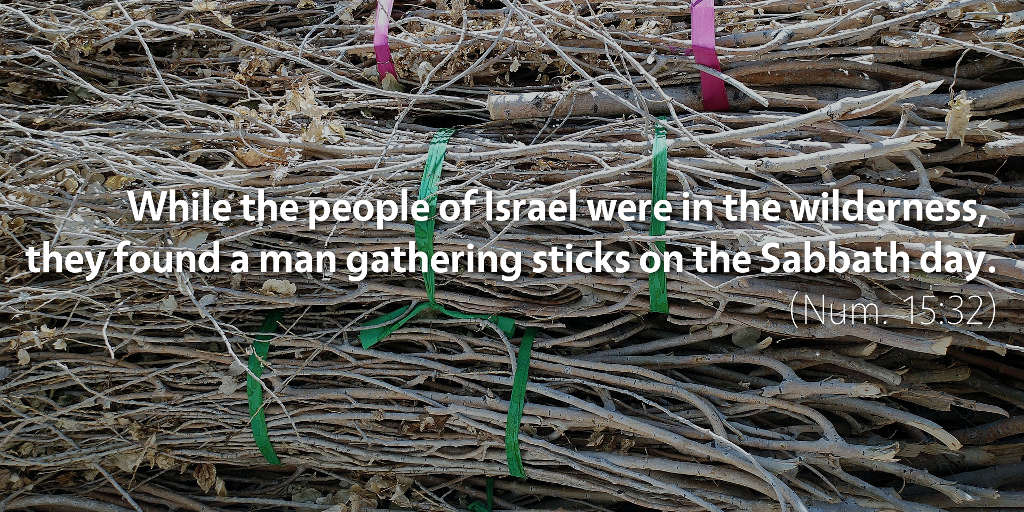Bible Readings for May 7th
Numbers 15 | Psalm 51 | Isaiah 5 | Hebrews 12
In our meditation for Leviticus 4, we observed that sin offerings (Lev. 4:2, 13, 22, 27) and guilt offerings (Lev. 5:14, 17; 6:4) only atoned for unintentional sins—that is, the kind of sins that were committed either without the knowledge that a particular action was forbidden or without the knowledge that an action was defrauding or hurting someone.
For other sins—that is, for sins committed in full knowledge of both the sinfulness of an action as well as the harm that was being inflicted upon someone else—God did not provide any atoning sacrifice. These were classified as “high-handed” sins, as though someone were lifting up his hands to flip off God in heaven while committing the sin: “But the person who does anything with a high hand, whether he is a native or a sojourner, reviles the LORD, and that person shall be cut off from among his people. Because he has despised the word of the LORD and has broken his commandment, that person shall be utterly cut off; his iniquity shall be on him” (Num. 15:30–31).
This passage about high-handed sins helps to explain the story that immediately follows in Numbers 15:32–36, where Yahweh commands that a man who is caught gathering sticks on the Sabbath should be put to death. Having just received the law from Sinai, there is no possibility that this man was unaware of the commandment to rest from work on the Sabbath.
And beyond that, by working on the Sabbath, this man was defrauding Yahweh of his rightful glory by refusing to rest. This man had lifted his hands in contempt against Yahweh, and his swift and severe punishment was totally just.
But we must compare this passage with Psalm 51, one of the other readings for today from the M’Cheyne Bible Reading Plan. There, we see David’s prayer when he is caught in the high-handed sin of taking Bathsheba, Uriah’s wife. In this prayer, David recognizes that no sacrifice exists to atone for his sins: “For you will not delight in sacrifice, or I would give it; you will not be pleased with a burnt offering” (Ps. 51:16).
Nevertheless, Yahweh extends mercy to David. Why? Ultimately, because of nothing more than Yahweh’s free grace toward a wretched sinner, but also because David humbled himself before Yahweh: “The sacrifices of God are a broken spirit; a broken and contrite heart, O God, you will not despise” (Ps. 51:17). David threw himself at the mercy of Yahweh, knowing that he deserved death, but pleading for forgiveness anyway.
If David had no assurance that he could be forgiven but entrusted himself to Yahweh anyway, then what excuse do we have if we refuse to come before Yahweh’s ultimate, once-for-all sacrifice of his Son Jesus Christ to ask forgiveness for our own high-handed sins?
Podcast: Play in new window | Download (5.0MB) | Embed
Subscribe: Apple Podcasts | RSS | More

Scripture quotations are from The Holy Bible, English Standard Version copyright © 2001 by Crossway Bibles, a division of Good News Publishers. Used by permission. All rights reserved.


